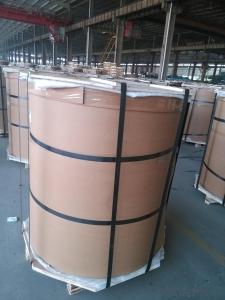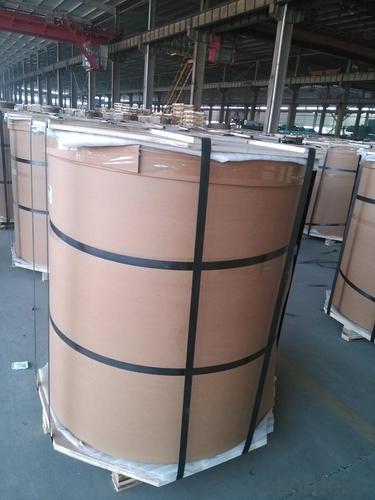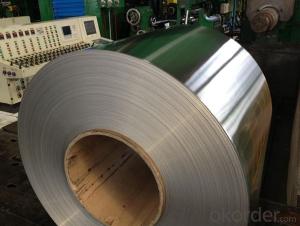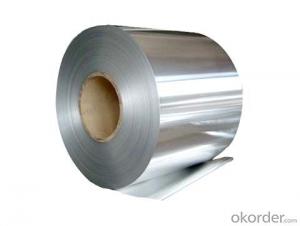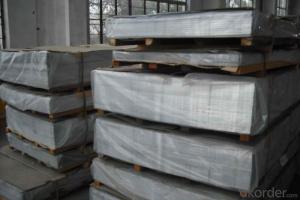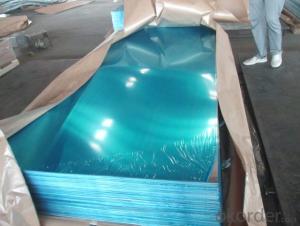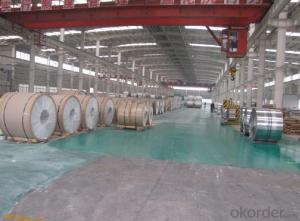Mill Finished Aluminum Coils for Foil Casting - Aluminum Roofing Sheets Kerala
- Loading Port:
- Shanghai
- Payment Terms:
- TT OR LC
- Min Order Qty:
- 5 m.t.
- Supply Capability:
- 3000 m.t./month
OKorder Service Pledge
OKorder Financial Service
You Might Also Like
Specification
1.Structure of Mill Finished Aluminium Coils for Foil Casting
Mill Finished Aluminium Coils for Foil Casting is one semi-finished aluminium material. This strip can be rolled down to aluminium coil,sheet,circle ect. The alloy AA1050 is widly used in building, industry ect. Its weight is much lower than steel. So many customers choosed aluminium material instead of steel.
2. Main features of Mill Finished Aluminium Coils for Foil Casting
a.Competitive price---We have our own mills and can produce mill finished aluminium coils, so we can control the production cost better.
b.Professional after-sale service---We have more than 15 years exportation experience and you need not worry about the exporation problems.
c.Fast delivery time---We can control the delivery time within 35 days.
3. Image of Mill Finished Aluminium Coils for Foil Casting
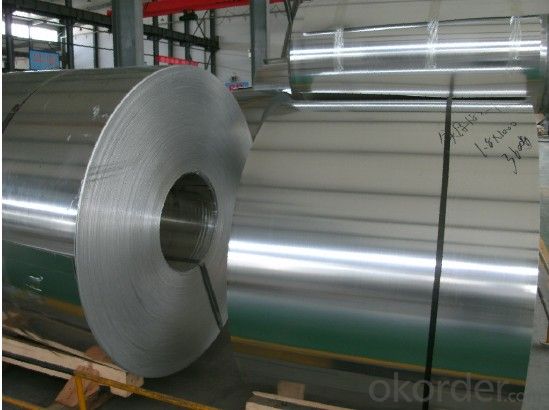
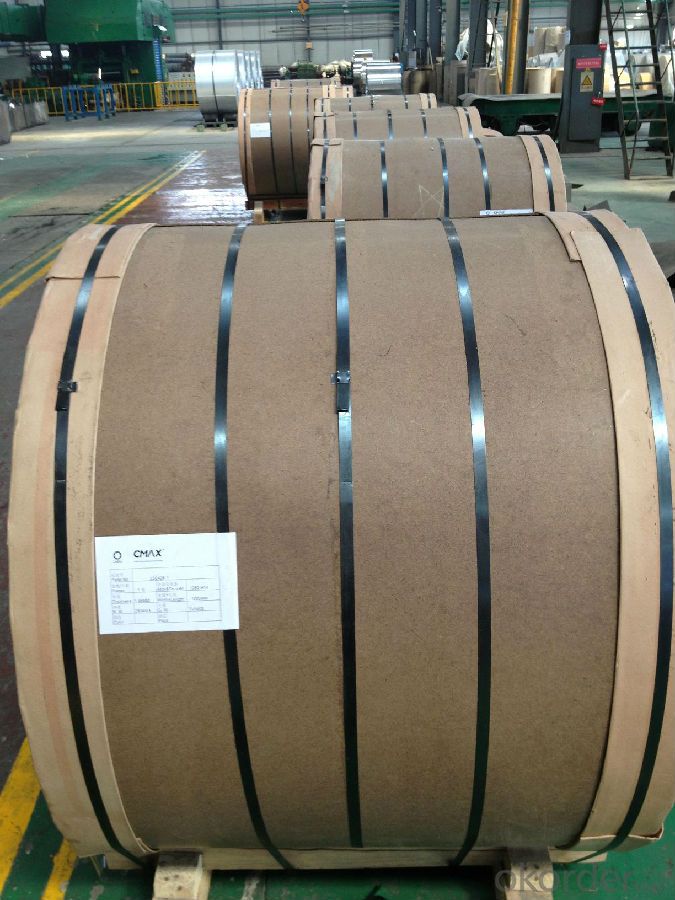
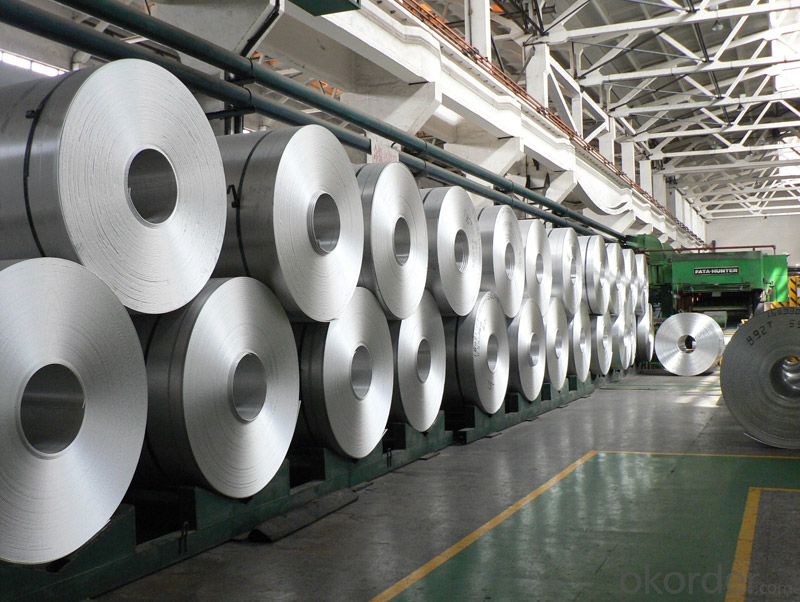
4. Product Specification of Mill Finished Aluminium Coils for Foil Casting
| ALLOY | TEMPER | THICKNESS | WIDTH | WEIGHT |
| AA1050 | H18 | 0.2MM-3MM | 1000MM-1500MM | 2 TONS |
5.FAQ:
What is the quality standard?
---Usually our standard is GB3880-2006
What is the largest width?
---It is 2300mm
What is the MOQ?
---Usually we can accept 80 tons.
- Q: What is the cost of aluminum sheets compared to other metals?
- The cost of aluminum sheets is generally lower compared to other metals such as stainless steel or copper. Aluminum is a widely available and abundant material, which contributes to its relatively affordable price in comparison to other metals.
- Q: AND WAT R THE THECNOLOGICAL ANDCOSTS AND BENEFITESOF USING ALUMINUM? what health -related and environment-related issues gave surface as aresult of its widespread use in society?
- airplanes are made from aluminum. certain beverages are also. aluminum is cheaper and lighter. the biggest problem is the amount of electricity that it takes to make aluminum
- Q: What unique considerations or prerequisites are necessary when installing aluminum sheets?
- <p>When installing aluminum sheets, there are several special requirements to consider. First, ensure that the surface is clean, dry, and free of any debris to guarantee proper adhesion. Use appropriate fasteners designed for aluminum to prevent corrosion. Measure and cut the sheets accurately to fit the intended area, as aluminum can be prone to warping if not handled correctly. Additionally, consider the environmental conditions, such as temperature and humidity, which can affect the installation process. Always follow the manufacturer's guidelines for installation and safety precautions.</p>
- Q: Can the aluminum sheets be used for manufacturing chemical storage tanks?
- Indeed, chemical storage tanks can be manufactured using aluminum sheets. Aluminum proves to be a flexible substance with numerous benefits for this particular application. Notably, its lightweight nature, resistance to corrosion, and impressive strength-to-weight ratio make it an ideal choice for securely storing a wide range of chemicals. Moreover, aluminum can be effortlessly molded into various configurations and dimensions, enabling the customization of storage tanks to suit specific needs. Nevertheless, it is crucial to take into account the type and concentration of the chemicals to be stored, as certain substances may potentially react with aluminum. In such instances, it becomes vital to employ appropriate coatings or linings to avert any chemical reactions.
- Q: Are aluminum sheets suitable for harsh weather conditions?
- Aluminum sheets are highly suitable for harsh weather conditions due to their exceptional properties. Aluminum is a lightweight yet durable material that offers excellent resistance against corrosion, rust, and UV radiation. This makes it particularly resilient against the damaging effects of extreme weather conditions such as heavy rain, snow, high winds, and intense sunlight. Furthermore, aluminum has a high strength-to-weight ratio, allowing it to withstand the pressure exerted by severe weather without sustaining significant damage. Additionally, aluminum sheets can be coated with protective finishes such as anodization or powder coating, further enhancing their ability to withstand harsh climates. Overall, aluminum sheets are an excellent choice for applications requiring resilience in harsh weather conditions.
- Q: Aluminum plate thickness 1 cm, iron plate thickness 0.15 cm, area 1 square meters, thank you
- It's too difficult. Just think about it
- Q: Can aluminum sheets be used for bus shelters?
- Yes, aluminum sheets can be used for bus shelters. Aluminum is a lightweight and durable material that is commonly used in construction projects, including bus shelters. It offers excellent resistance to corrosion, making it suitable for outdoor applications where it may be exposed to harsh weather conditions. Additionally, aluminum sheets can be easily formed and fabricated into various shapes and sizes, allowing for customized designs and easy installation. The use of aluminum sheets for bus shelters also provides a cost-effective solution as it requires minimal maintenance and has a long lifespan.
- Q: Can aluminum sheet be used for packaging applications?
- Yes, aluminum sheet can definitely be used for packaging applications. Aluminum is widely used in the packaging industry due to its excellent properties. It is lightweight, strong, durable, and malleable, making it ideal for packaging various products. Aluminum sheets can be easily formed into different shapes and sizes, allowing for custom packaging solutions. Additionally, aluminum has excellent barrier properties, providing protection against moisture, gases, and light, which helps to maintain the freshness and quality of the packaged goods. Furthermore, aluminum is non-toxic and can be easily recycled, making it a sustainable choice for packaging applications. Overall, aluminum sheet is a versatile and reliable material for packaging various items, including food, beverages, pharmaceuticals, cosmetics, and many others.
- Q: Aluminum or steel bike frame cost more???...which one cost the most usually???
- From a material standpoint, an aluminum tube bicycle is more expensive to produce. The raw materials are more expensive and the material is more difficult to weld. It started with steel, aluminum took off in the 90's, and now carbon fiber is becoming more popular. The progression has equated to lighter frames with greater comfort, but at increased costs. The increased comfort has come from tube shape factors (oval, etc.) and the strategic placement of carbon fiber in the seat stays. The material properties of steel and aluminum are highly dependent on composition, i.e. alloying elements added. If a steel frame costs more it's because the specialty manufacturer is either using an exotic alloy (Cr, Mo, V) or just gouging on the fact that there are fewer steel frame producers. Generally steel frames have better dampening properties but at a weight penalty compared to aluminum. Since steel has a higher yield strength and higher fatigue life at a given stress level so it can get away with ever thinner tube cross sections. Personally I want a bike made of Beryllium, I wonder if there is a Be-Li alloy out there (I'd have to check the valence, but not motivated right now). That would have a good strength to weight ratio, it would just have to be coated.
- Q: Can aluminum sheets be etched or engraved?
- Yes, aluminum sheets can be etched or engraved.
Send your message to us
Mill Finished Aluminum Coils for Foil Casting - Aluminum Roofing Sheets Kerala
- Loading Port:
- Shanghai
- Payment Terms:
- TT OR LC
- Min Order Qty:
- 5 m.t.
- Supply Capability:
- 3000 m.t./month
OKorder Service Pledge
OKorder Financial Service
Similar products
Hot products
Hot Searches
Related keywords
